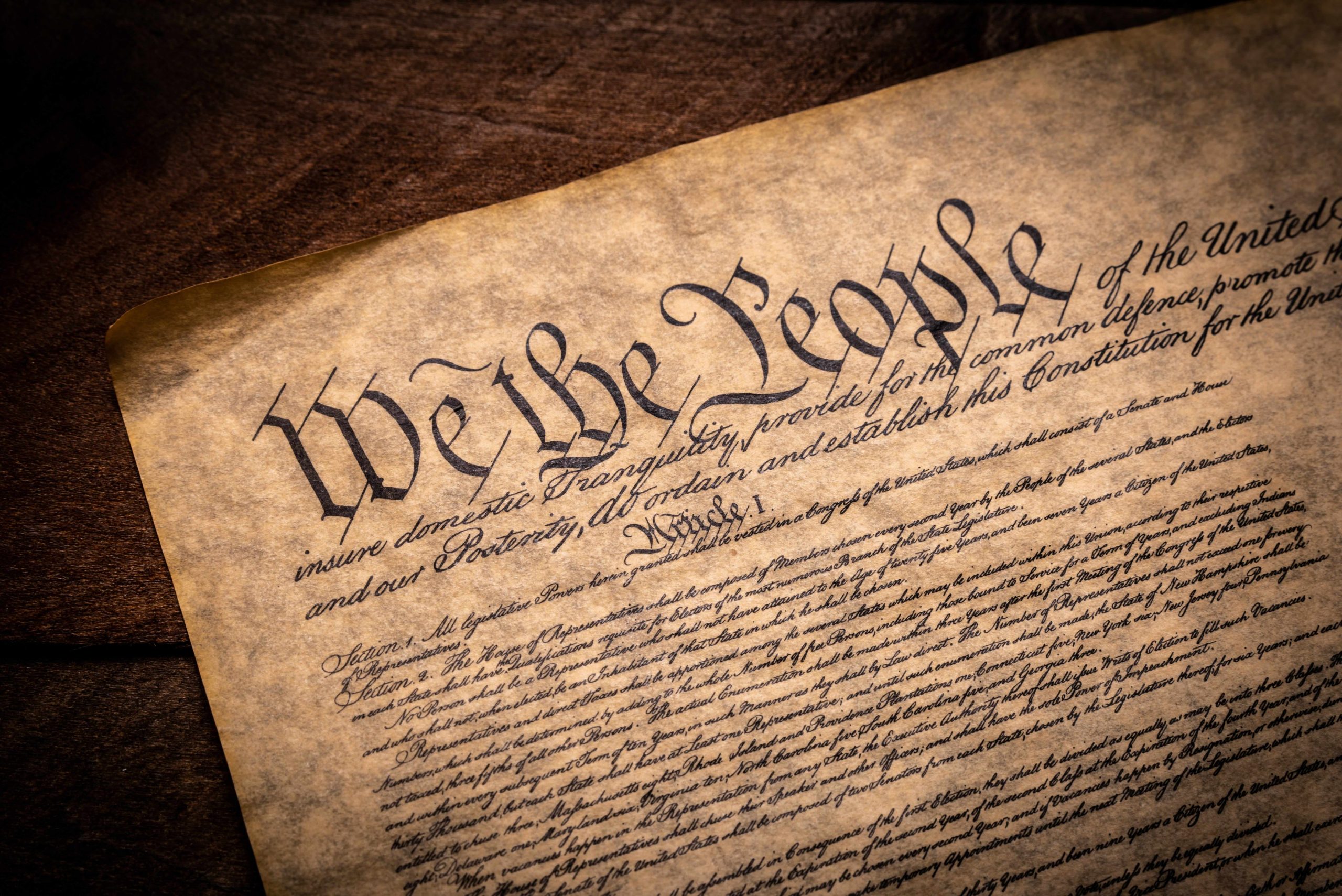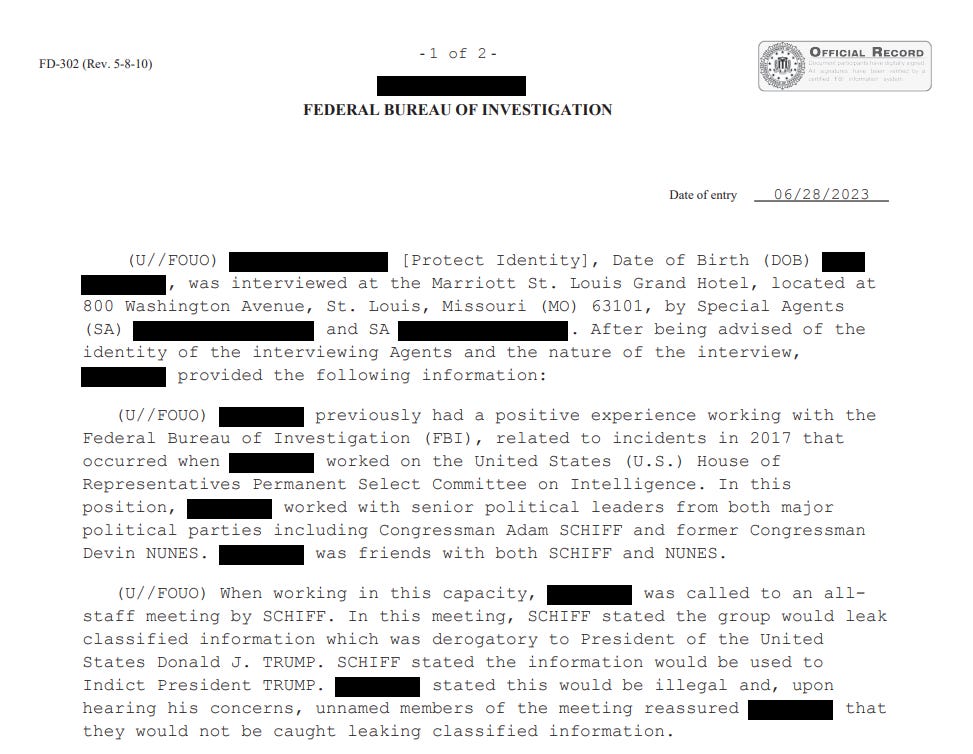Yves here. Tom Neuburger continues his systematic coverage of how the US constitutional order is being revised to favor even more those at the top. I am stunned at the way the Trump-Putin summit is sucking the air supply out of reporting on Trump’s continuing power grabs, which if anyone were paying attention, can be wielded against factions in the elites that fall out of line. See the treatment of top universities and the scientific establishment as examples.
The latest is the Administration effort to take over local policing. That authority has been such an important bulwark that most commentators don’t even think much about it. From Richard Kline in Progressively Losing in 2011, debunking the idea that progressives were structurally in a weak position:
“The ‘Right’ is too strong.” The oligarchy specifically and the Right in general are far less strong in American society apart from what their noise machines and bankroll flashing would make one think. The great bulk of the judiciary remains independent even if important higher appellate positions are tainted. Domestic policing is, by tradition and design, highly decentralized, with a good deal of local control, making overt police state actions difficult, visible, and highly unpopular (think TSA). While the military is a socially conservative society in itself, it is also an exceptionally depoliticized one, with civilian control an infrangible value. Popular voter commitment to the nominally more conservative political party has never been narrower or more fragile.
Contrast the state of the US then with the latest Trump plans. From the Guardian in Trump says he’ll seek ‘long-term’ control of DC police and signals he’ll target other cities next:
Donald Trump said on Wednesday he would ask Congress for “long-term” control of Washington DC’s police department and signaled he expected other Democratic-led cities to change their laws in response to his deployment of national guard troops and federal agents into the capital…
“We’re going to need a crime bill that we’re going to be putting in, and it’s going to pertain initially to DC,” Trump said during a visit to the Kennedy Center performing arts venue in Washington. “We’re going to use it as a very positive example, and we’re going to be asking for extensions on that, long-term extensions, because you can’t have 30 days.”
He said he expected to propose the legislation “very quickly”, though the Senate and House of Representatives are out of session and not scheduled to return until 2 September. Trump alluded to other options for extending control of the police department, saying “if it’s a national emergency, we can do it without Congress”.
The Libertarian Institute described another Trump scheme in Pentagon to Create ‘Domestic Civil Disturbance Quick Reaction Force’:
The Department of Defense is planning to create a rapid response force of National Guard troops to quickly deploy to American cities where protests or unrest are occurring.
On Tuesday, The Washington Post reported that it obtained documents showing the Pentagon is creating a “Domestic Civil Disturbance Quick Reaction Force.”
“The plan calls for 600 troops to be on standby at all times so they can deploy in as little as one hour,” the outlet explained. “They would be split into two groups of 300 and stationed at military bases in Alabama and Arizona, with purview of regions east and west of the Mississippi River, respectively.”
One hundred troops at each base would be on standby to deploy within an hour, while the entire quick force would begin operations within 12 hours. The National Guard will be equipped with weapons and riot gear, and the deployments will be limited to 90 days to prevent burnout among the troops.
Recall also Kline’s remark about the military being depoliticized (except in its fealty to arms pork). Colonel Larry Wilkerson saw a dark side to Trump’s bizarre birthday parade. He pointed out that those who participated had volunteered to do so. He saw that as a way to identify servicemembers who were particularly loyal to Trump and could be positioned to help Trump implemented orders that historically typical soldiers would refuse as illegal.
By Thomas Neuburger. Originally published at God’s Spies

The Next American Constitution is being written as we speak, and rather quickly at that. The situation is stark enough that we’ve started a series. Links to other posts on this subject can be found here.
Today, I’d like to look at one element — a bipartisan one — that defines the new arrangement our country is ruled by. That element is: elite immunity and absence of rule by law, and it’s already in place. I said this would be bipartisan. The absence of rule by law is a two-party problem. We’re going to gore two cows at once in today’s sacrifice.
Part of this discussion will examine the Right’s project to make sure a muscular (read, hard-core conservative) president has no real constraint on his acts. Another part will look at the way embedded elites can act with impunity when doing embedded elite business. If you’re ready, read on.
What Law Constrains the President? Apparently None.
We’ve grown ourselves a king. What more can be said?

Hyacinthe Rigaud’s portrait of Louis the Grand
It didn’t happen quickly; it was a process, and as I say, very much a bipartisan one. Here, for example, is Al Gore joking away the theft of his own presidency by the Bush-partisan Supreme Court coup in 2001. He even gives a stand-up’s bow to acknowledge his applause. An awful moment for the rule of law.
Two Court Decisions that Immunized the King
This is not hyperbole, this talk of a king. Let’s look at two Supreme Court rulings through the eyes of a lawyer, Ed Walker. (You may know him as the writer Masaccio from Fire Dog Lake.) Those rulings are Trump v. United States and Trump v. CASA Inc. Walker writes this:
The Anti-Democracy Project of John Roberts
Trump v. CASA Inc., decided June 27, continues the personal project of John Roberts to enhance the power of the executive at the expense of the other two branches of government. It continues the work of Trump v. United States, where Roberts gave Trump almost unlimited power to ignore Congress as he sees fit. It follows his weakening of statutes he doesn’t like, his refusal to allow Biden to exercise the authority given him by Congress, as in the student loan case, Biden v. Nebraska, and many other cases. … [T]hese cases weaken the legislature and the judiciary while strengthening the President[.]
These cases are big deals; they give legal cover to presidential illegality, a project that goes back decades to Richard Nixon. We’ve crossed the Rubicon when it comes to elite freedom from laws. Unless a future Court reverses these rulings — unlikely, right? — the law on presidential immunity has been changed for good.
Trump v. United States
Regarding immunity from prosecution for presidential crimes, Walker points us to this summary, which tells us, in part, that according to Trump v. United States:
- Immunity is absolute with respect to a president’s exercise of his core Article II powers.
- Where the president’s power is shared with Congress, “Precedent necessitates at least a presumptive immunity from criminal prosecution for a President’s acts within the outer perimeter of his official responsibility.…[T]he President [is] immune from prosecution for an official act unless the Government can show that applying a criminal prohibition to that act would pose no ‘“dangers of intrusion on the Executive Branch.’”
- In deciding whether an act is official or unofficial, courts cannot inquire into a president’s motives.
- Courts may not deem an action unofficial merely because it allegedly violates a generally applicable law.
There’s a lot of focus on the last three points, but don’t you read the first point as saying that the president has the right to break the law when he acts as president? It looks that way to me, and any president worth his power-hungry salt would push that right just as far as he possibly can.
This makes, in other words, Richard Nixon correct, at least in regard Article II obligations. (Getting re-elected isn’t an Article II duty — yet — so no salvation from Watergate for him. Still, were he looking for “terrorists” in that hotel, this Court would absolve him.)
Trump v. CASA Inc.
If the first case made sure the president can act lawlessly, in this case the Court keeps the courts from blocking him. Walker:
This case is a government request for relief from nationwide injunctions barring enforcement of the obviously unconstitutional Trump executive order denying birthright citizenship to a large number of babies born here[.]
The mechanism by which the Roberts Court let Trump’s order stand is wonderfully described in Walker’s piece. It leans on a specious point about English Common Law. (Search for “Amy Coney Barrett says no” and read forward from there.)
But my main point is contained in Ketanji Brown Jackson’s dissent. The mechanism the Roberts Court used to let Trump violate the Fourteenth Amendment’s Citizenship Clause is useful everywhere, against any law. The Roberts Court claims that lower courts cannot use injunctions to grant relief to “nonparties” to a dispute, and therefore cannot issue “universal injunctions” against the government.
It works like this. The government denies Person A her Fourteenth Amendment rights — or any rights anywhere granted — so she goes to a lower court and seeks an injunction. The lower court can enjoin the government — but only to provide relief for Person A. No one else gets relief. So if you’re not Person A, the government is unconstrained until you yourself sue. This applies to everyone effected by the illegal action. A thousand affected, a thousand separate suits, each with a one-person-only injunction available.
That’s monstrous. Jackson’s dissent gets to the heart of the matter:
The Court’s decision to permit the Executive to violate the Constitution with respect to anyone who has not yet sued is an existential threat to the rule of law.
How simple is that? How obviously true on its face?
She continues: The Court has just “endorse[d] the creation of a zone of lawlessness within which the Executive has the prerogative to take or leave the law as it wishes”.
A “zone of lawlessness,” enshrined by the law. A new world indeed.
‘Conservatives’ Are Doing This Why?
You may ask yourself, why would self-described conservatives do this? Don’t they think someone of the opposite stripe, like a “Sanders as we’d like him to be,” might use these same powers, which are clearly breathtakingly broad?
I’ll offer an answer, to which you might disagree: I think “conservatives” know that the Money that enables their deeds disables their opponents. Can you see a President Schumer using Trump’s new power? I don’t see him rolling it back, and I also don’t see him going so far off his Wall Street leash as to use it himself.
What about a President Sanders, or anyone who might threaten the elite power game? You saw what happened to Bernie, twice in a row, with Obama leading the charge as soon as he got close. Thanks to the Democrats, his campaign was dead by March.
My cynical side wonders, does an anti-elite Democrat have to make an elite-friendly deal to get past the primary at all? We may soon find out.
It’s All of Them, Isn’t It
I promised bipartisan rule-of-law lawlessness. So two more examples.
James Clapper
DNI James Clapper lied under oath before Congress. The year is 2013. The date is March 12. The president is Barack Obama. The question comes from Ron Wyden. It’s a Democratic Party tale from stem to stern.
Q: Does the NSA collect any kind of data at all on millions or hundreds of millions of Americans?
A: No, sir.
One month later, to Clapper’s surprise this happened:
Clapper’s claim to Congress was undermined by an April order of the secretive Fisa court instructing Verizon to turn over phone records on millions of Americans to the National Security Agency. Published by the Guardian, the order explicitly authorized the NSA to collect so-called metadata “between the United States and abroad; or wholly within the United States, including local telephone calls.” An NSA data-mining program, called Boundless Informant and also revealed by the Guardian, further allows the NSA to sort its collected communications by country of origin. [emphasis added]
“Boundless Informant” is a little too on-the-nose, wouldn’t you say?
So was Clapper called back to Congress? No. Was he arrested? No. He evenadmitted he lied. In a June interview with Andrea Mitchell, Clapper said:
“I responded in what I thought was the most truthful, or least untruthful manner, by saying no.”
Yet despite being publicly excoriated for perjury, the chair of the Intelligence Committee, Democrat Dianne Feinstein, said, “There is no more direct or honest person than Jim Clapper.”
He was doing his embedded elite job — spying on Americans — and just like that, immunity conferred and we move on.
Adam Schiff
This one may trouble some of the anti-Trump crowd, but several things can be true at the same time. Trump can be running strong in the race for worst president ever; and elites can also do deeply illegal things to help make him fail.
This story involves former Rep. Adam Schiff. Below is part of an FBI report in which a whistleblower from the House Permanent Select Committee on Intelligence made damning declarations. (Note: As the “U” marking indicates, this is an Unclassified document.)

Plain text (emphasis mine):
“[NAME] was called to an all-staff meeting by SCHIFF. In this meeting, SCHIFF stated the group would leak classified information which was derogatory to President of the United States Donald J. TRUMP. SCHIFF stated the information would be used to Indict President TRUMP. [NAME] stated this would be illegal and, upon hearing his concerns, unnamed members of the meeting reassured [NAME] that they would not be caught leaking classified information.”
Yes, this is about Schiff, a hero to many; and yes, it’s Russiagate stuff, which is now being shushed as either old news or a blatant Epstein distraction.
But what if the report is true? Leaking classified information is a criminal offense.
Is this how we want to deal with a problematic, yet duly elected president? If so, what does that say about our next new Constitution? About how power is transferred? About who can, with impunity, annul a legal election after the oath of office is administered?
Imagine a President Sanders (the one in our minds). What if he somehow won and, say, Clapper, Schumer and their friends wanted him out. What post-election tools do they now have?
Food for thought, say I.



